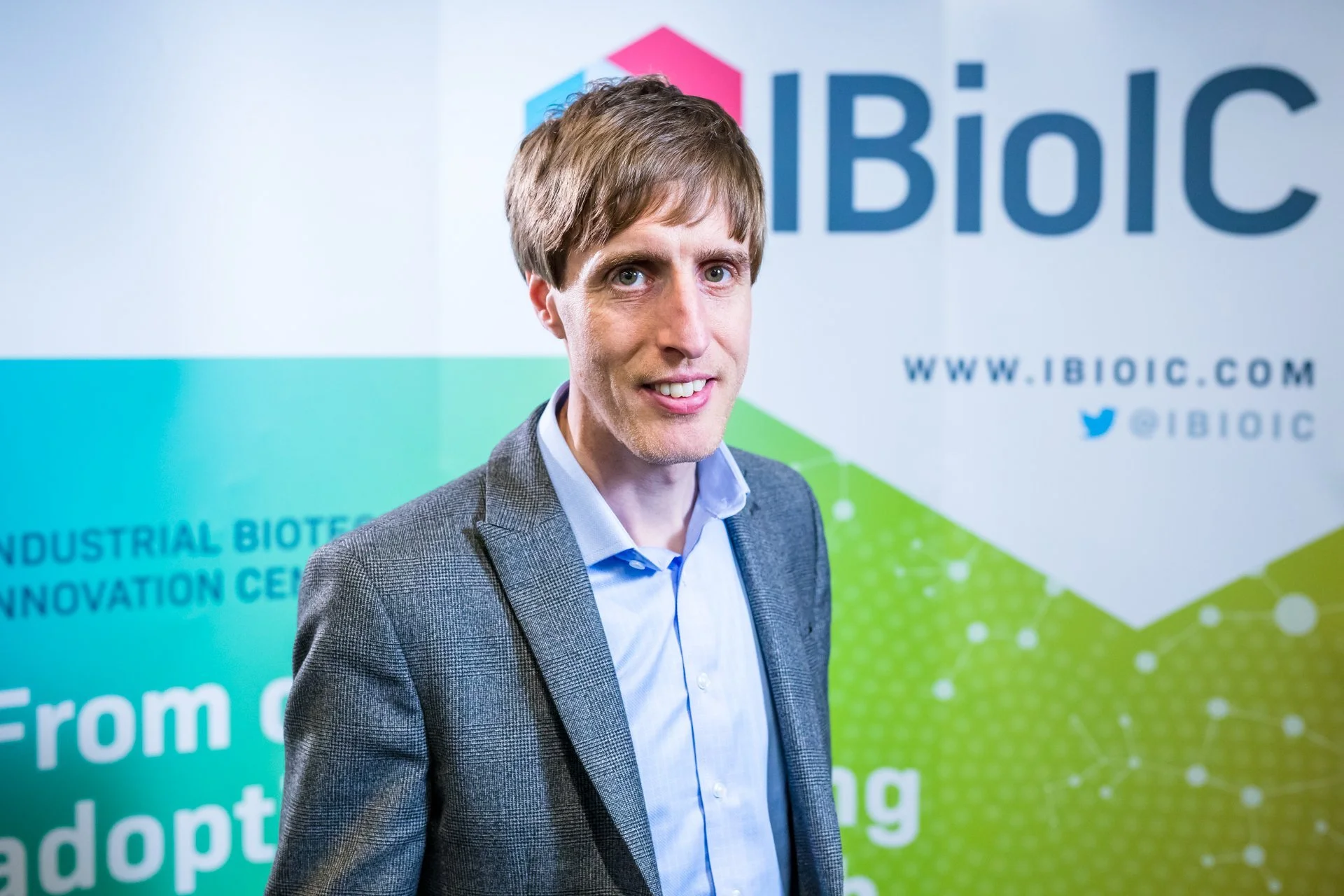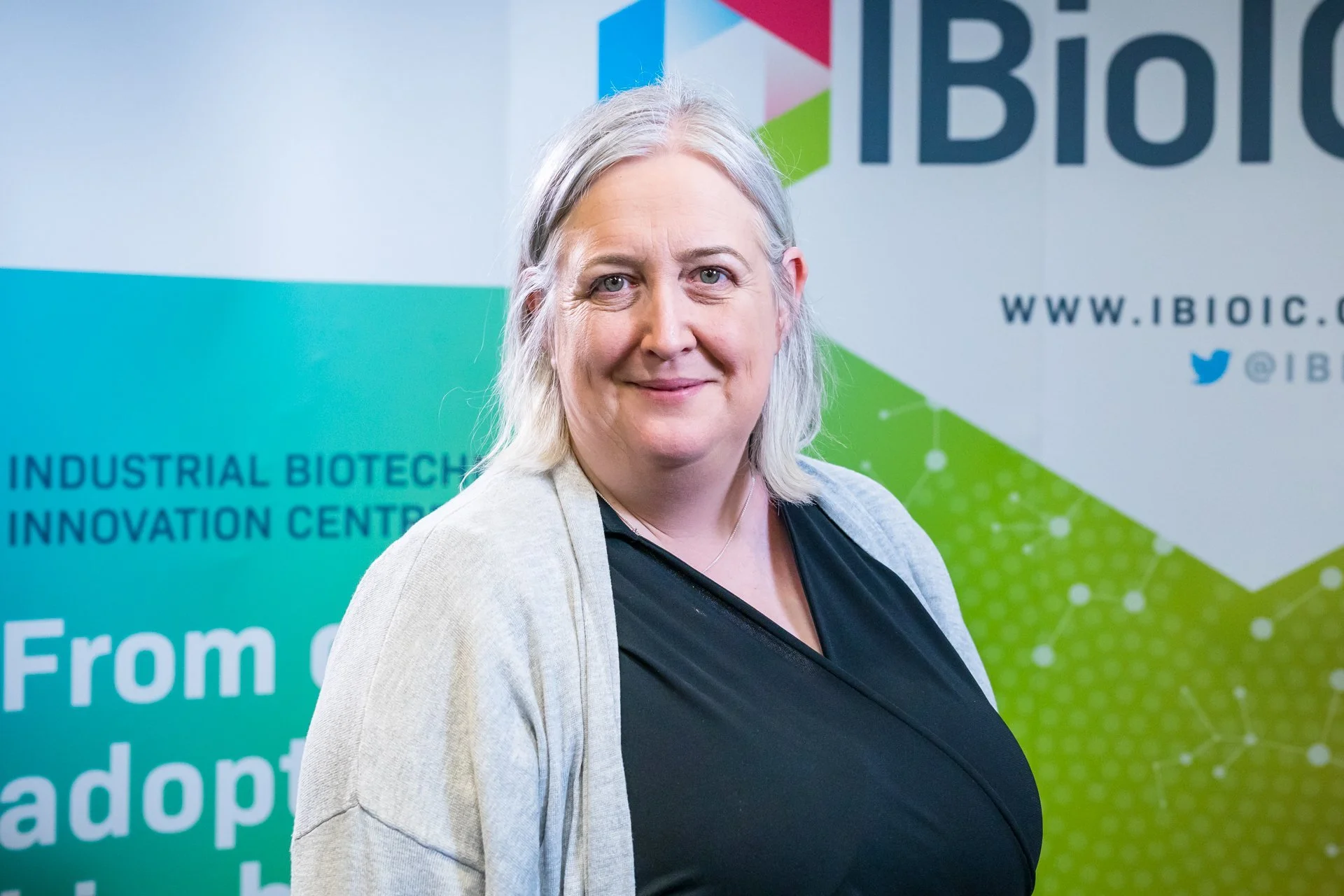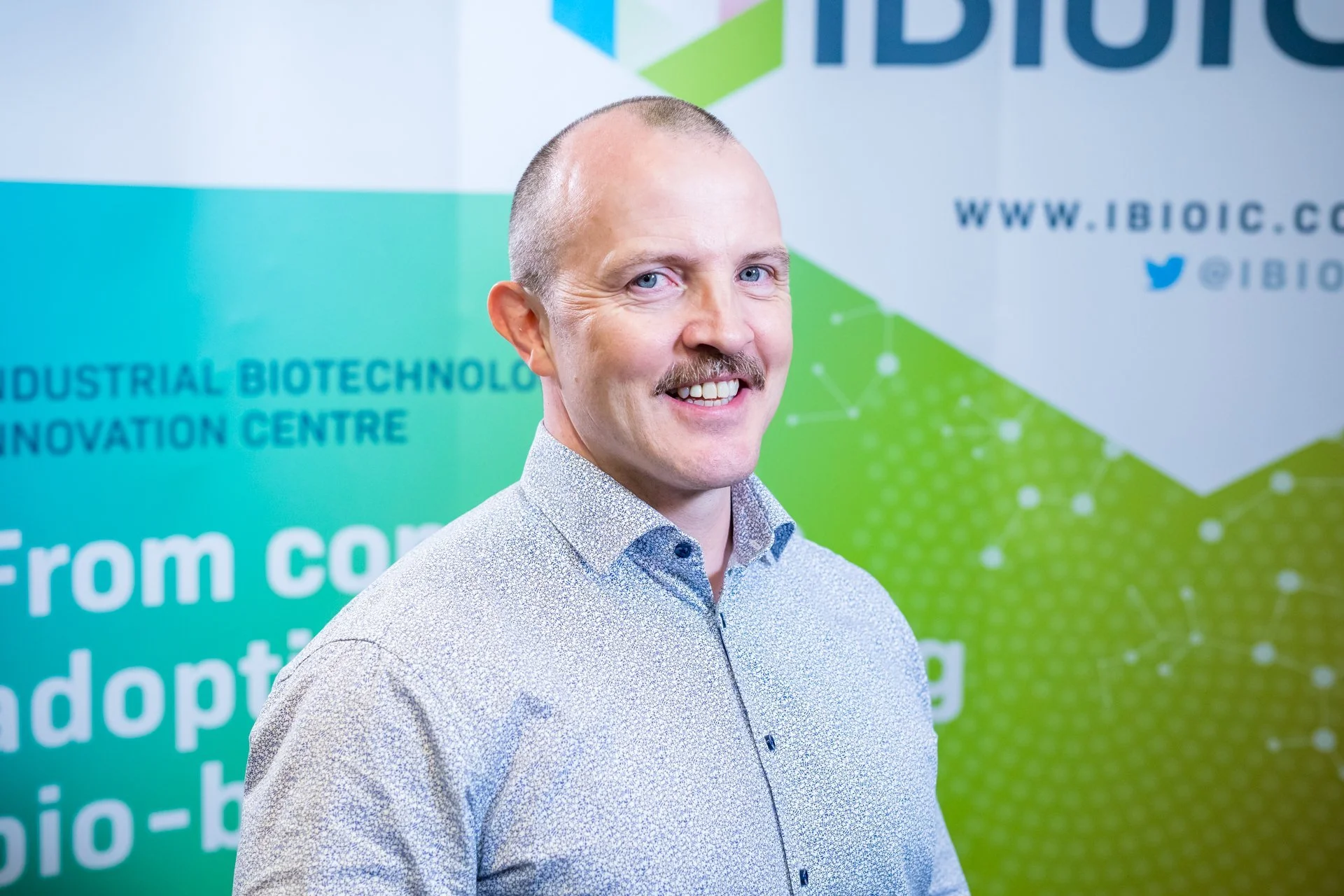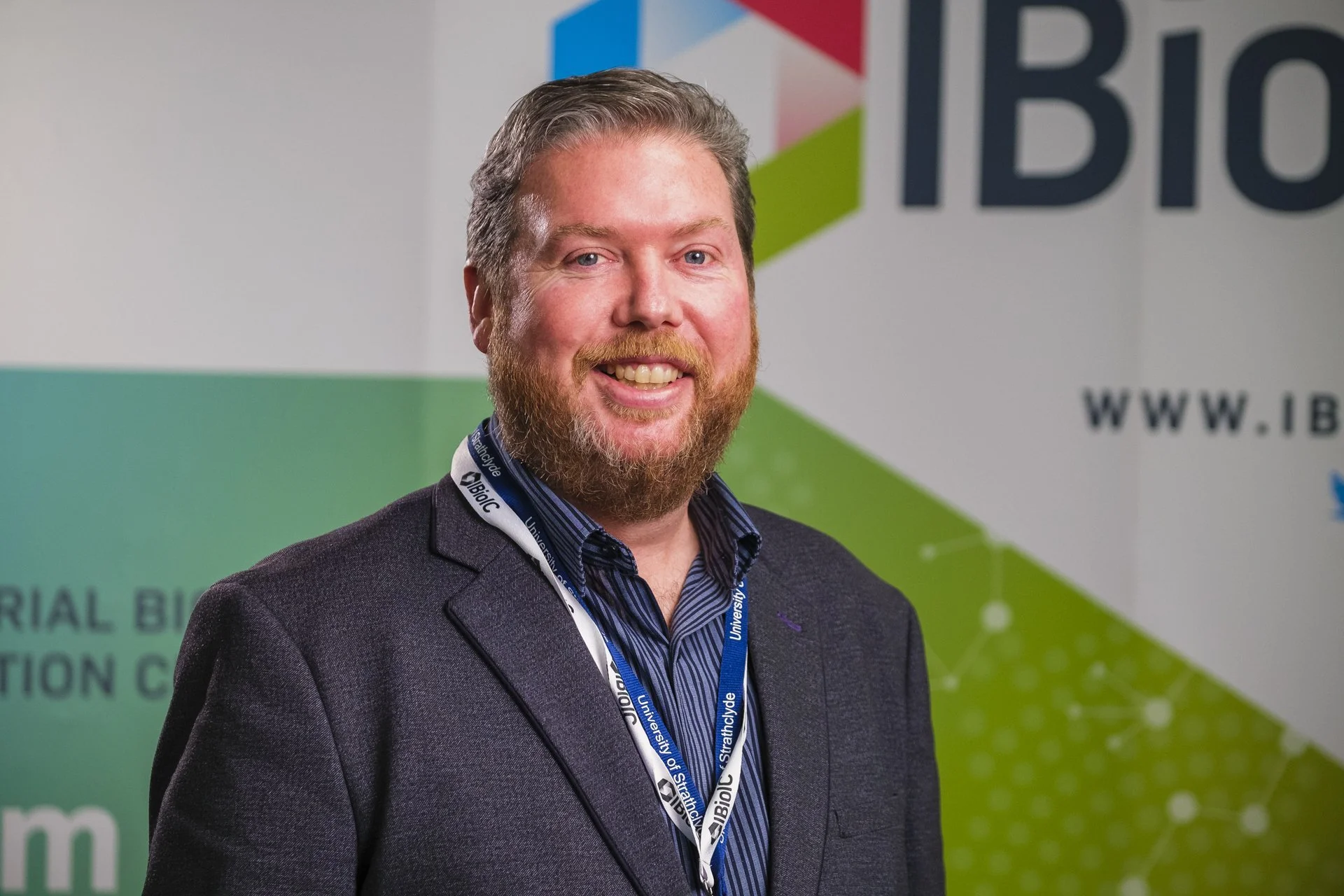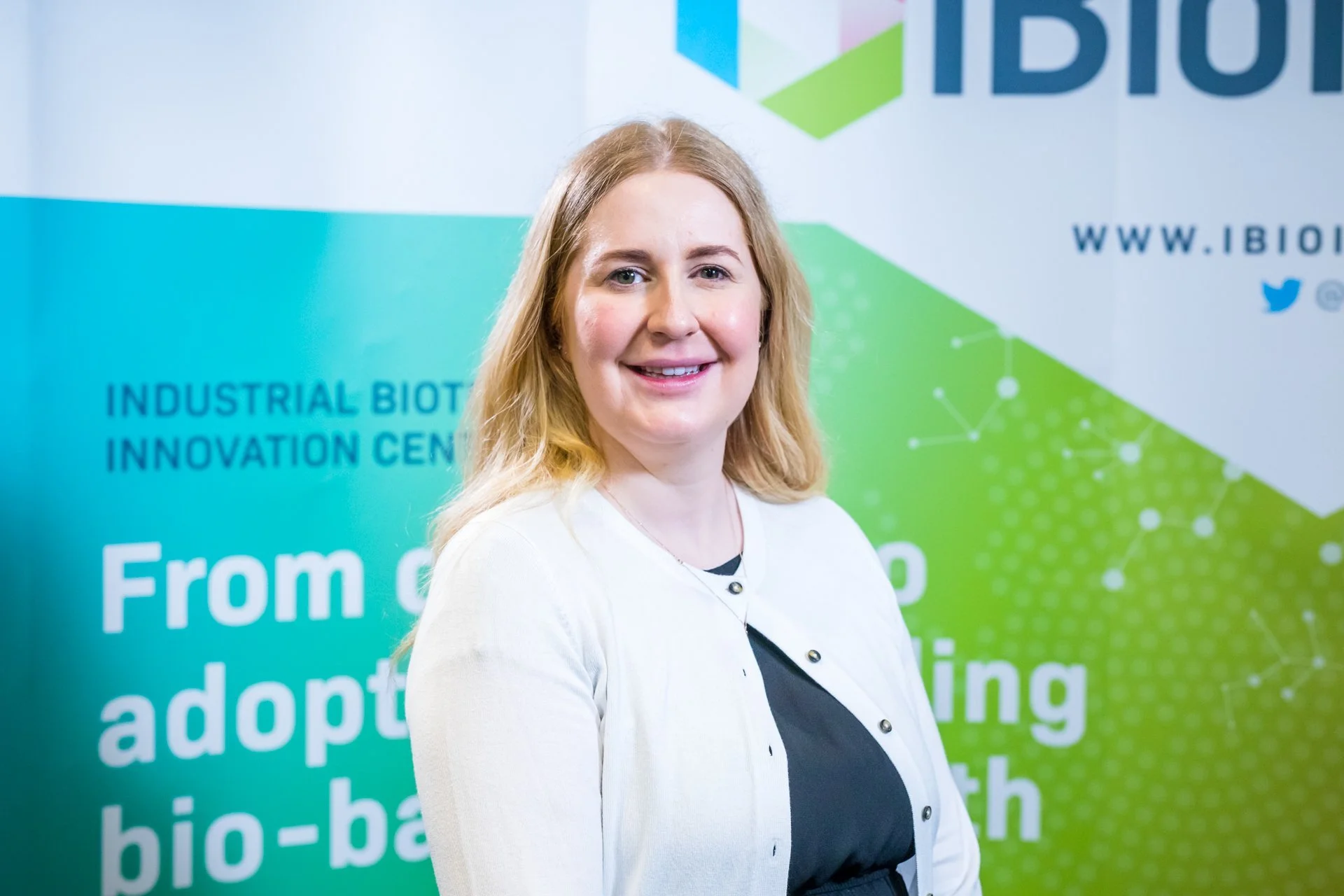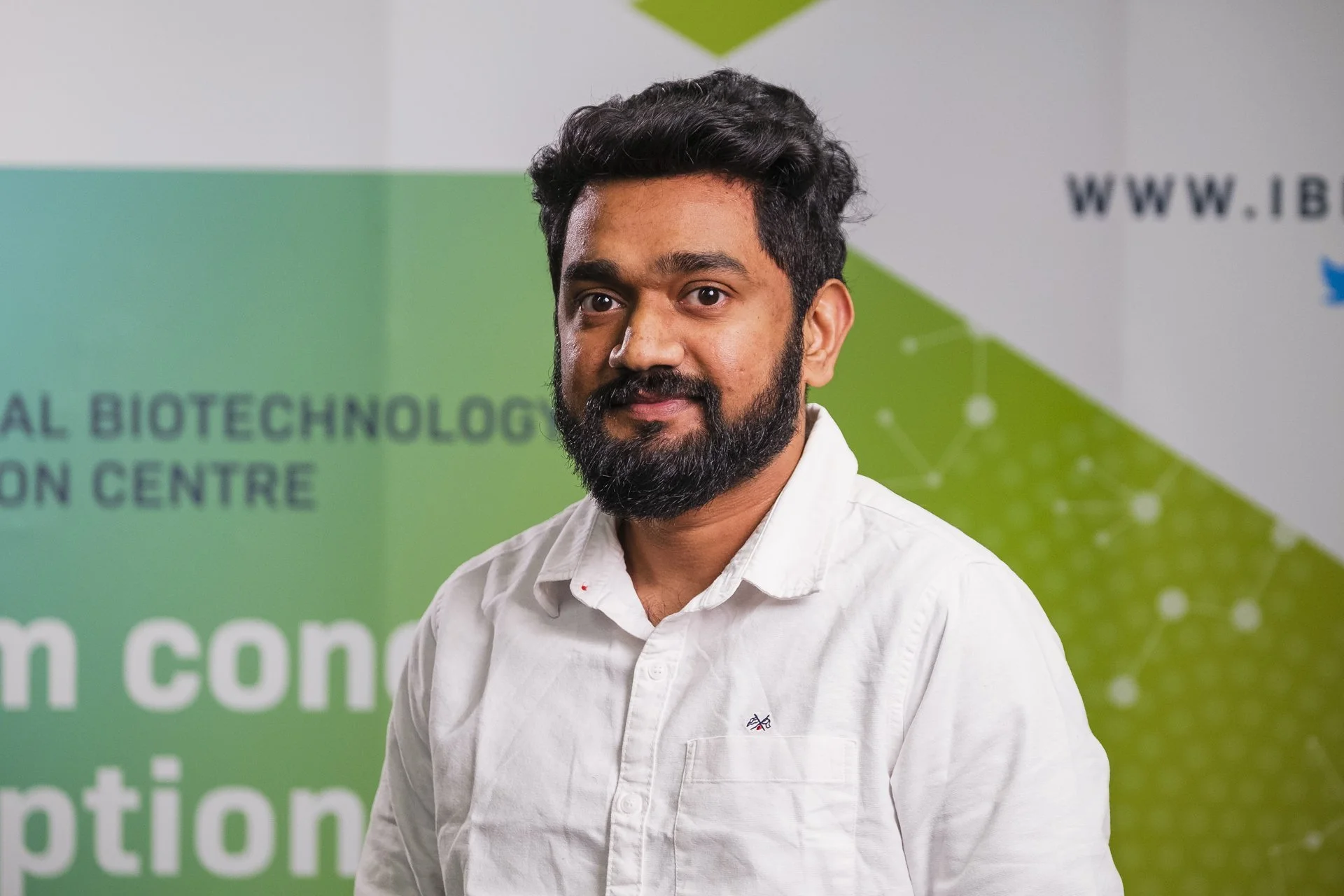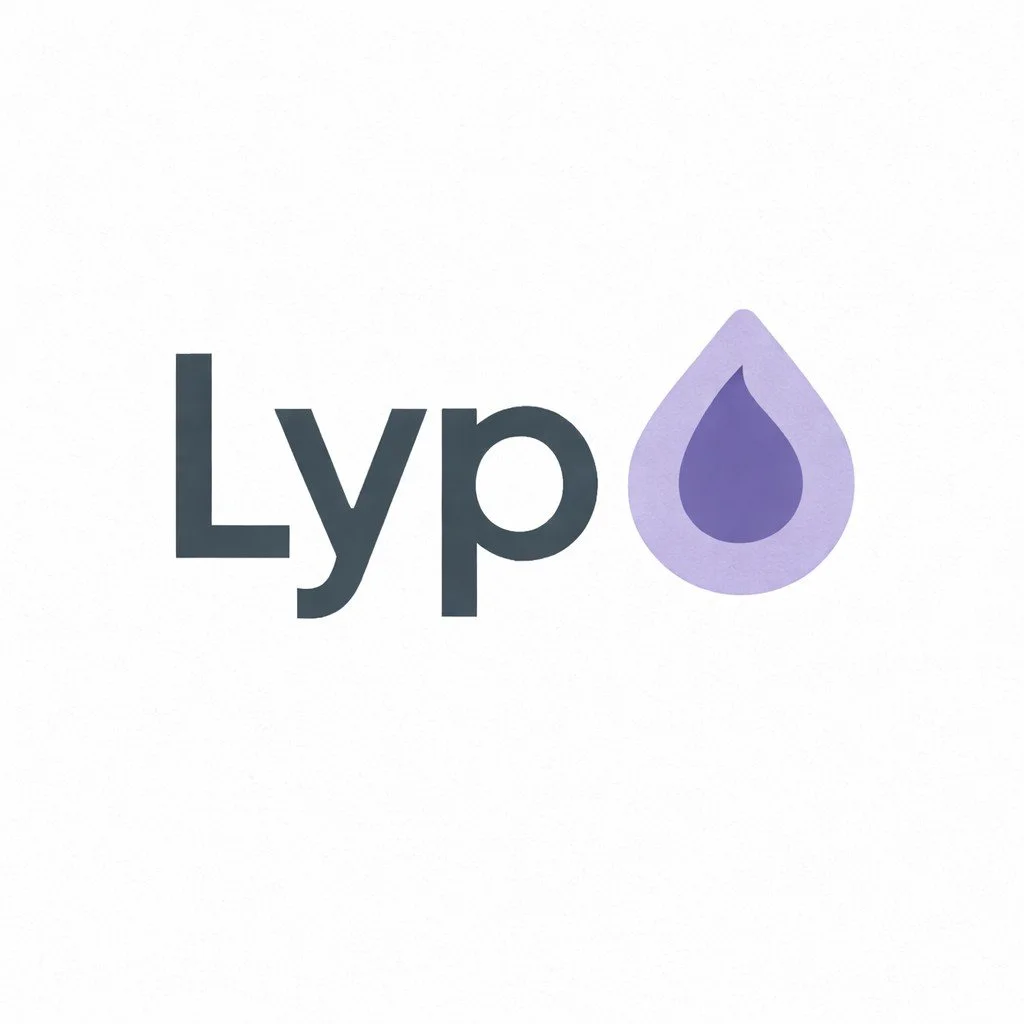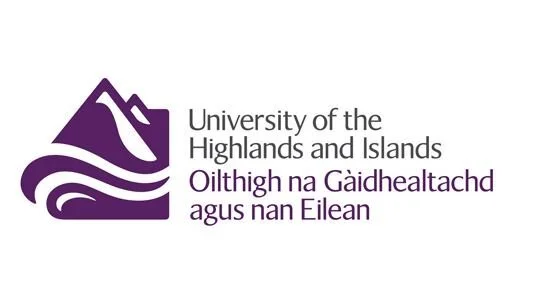About the Industrial Biotechnology Innovation Centre

Biotechnology uses plant-based and waste resources to produce or process materials, chemicals and energy, offering green and sustainable alternatives to fossil fuels in everything from energy, to medicines and food packaging.
IBioIC is a networking and support organisation that connects industry, academia and government to bring biotechnology processes and products to the global market. We do this by offering scale-up facilities, talent development, funding provision, and promotion of Scotland’s unique assets.
-
IBioIC’s Governing Board sets the strategic direction of the Centre, ensuring all its activities contribute to its overall vision. The Governing Board is also responsible for compliance, financial oversight and risk management.
Members of IBioIC’s Governing Board
Chair – Peter Williams (Chair), INEOS
Mark Bustard, IBioIC
Duncan Graham, University of Strathclyde
Susan Rosser, University of Edinburgh
Luuk Van Der Wielen, Bernal Institute, University of Limerick, IRL & Delft University of Technology, NL
Derek Stewart, James Hutton Institute
Sara Holland, Potter Clarkson
Martin Hayes, Johnson Matthey
Barbara Blaney, Johnson Matthey
Chris Courtney, NMIS
Deborah O’Neil, NovaBiotics
Jeremy Gillespie, Arcticzymes
Kirk Malone, Britest
Observers
Julia Mitchell, Scottish Funding Council
Nic Peyret, Scottish Enterprise
If you are a current member of IBioIC and would like to register your interest in becoming a member of our Governing Board, please email us at info@ibioic.com.
-
The Knowledge Exchange & Innovation Advisory Board (KEI) oversees initiatives and strategic guidance aimed at fostering collaboration between academia, industry, and government to advance the Centres biotechnology innovations.
Members of IBioIC’s KEI AB
Adam Giangreco, SRUC
Alexandra McConnachie, Heriot-Watt University
Alicja Dzieciol, SilviBio
Amy Tayler, Edinburgh Innovations
Catherine Breslin, University of Strathclyde
Colin McMurray, Forth Valley College
Gail Shuttleworth, NNFCC
Giovanna Bermano, Robert Gordon University
Jonathan Dempsey, Pathway Bio
Josie Lefevre, Thomas Swan
Lissa Herron, Converge
Orla Kelly, University of the West of Scotland
Paty Rojas, SAOS
Polly Van Alstyne, UCL Innovation & Enterprise
Tamsyn Kennedy, Scottish Water
Mark Bustard, IBioIC
Liz Fletcher, IBioIC
If you are a current member of IBioIC and would like to register your interest in becoming a member of our KEI Advisory Board please email us at info@ibioic.com.
-
The Skills Advisory Board (SAB) provides guidance on developing a highly skilled workforce to support the growth of the industrial biotechnology sector.
Chair – Murray Brown, Britest
Susan Bryan, University of the Highlands and Islands
Susan Rosser, University of Edinburgh
Jen Vanderhoven, Frey Consulting
Jo Partridge, MiAlgae
Luuk Van Der Wielen, Bernal Institute, University of Limerick, IRL & Delft University of Technology, NL
Tim Miller, Croda
Mary Jenkinson-Finch, BBSRC
Sara Holland, Potter Clarkson
Alex McVey, OGIBio
Mary Doherty, IBioIC
Kirsty Robb, IBioIC
Stephen Gordon, IBioIC
If you are a current member of IBioIC and would like to register your interest in becoming a member of our SAB, please email us at info@ibioic.com.
Meet the Team
Industry Members
IBioIC has over 400 member organisations, working across Scotland, the rest of the UK and Europe to find innovative solutions to modern problems.
Our industry members range from medical biotechnology companies working on protein production through to those developing green solutions in biomanufacturing, that utilise agriculture, marine and forestry derived feedstocks in sustainable manufacturing processes.
We transform wastewater into usable energy, powering a circular economy that saves water and makes every drop count
Leftear is an acoustic engineering company that develops and tests bio-based materials for sustainable noise and vibration control solutions
Intellectual property (IP) law firm specialising in patents, trade marks and designs with offices in the UK and the Netherlands
Expertly crafted Scottish Malt Whisky since 1825
Delivering innovative and effective solutions to tackle antimicrobial resistance, using novel bacteriophage formulations
The Singapore Economic Development Board (EDB) drives strategies to position Singapore as a global hub for innovation, technology, and economic growth
Building an innovation cluster for the bioeconomy in York and North Yorkshire
CloudForest is a digital marketplace for UK-grown timber, connecting woodland managers, harvesting contractors and processors. It makes it easier to buy and sell smaller parcels of standing trees and roadside logs
Dyneval’s mission is to democratise the measurement of subvisible particles with nanoscale sensitivity from farm (Dynescan) to pharma (Lumero)
Seafood Scotland is a specialist team providing hands-on support and advice through a range of free services related to the Seafood Industry
We connect innovators with new partners and new opportunities beyond their existing thinking – accelerating ambitious ideas into real-world solutions
SAMASTAR is developing innovative automation technology for monitoring and feeding cultures remotely and in real-time to accelerate scaleup and R&D
Cultivating design rooted with life's elements. A interdisciplinary think and do studio
Serving the Precision Fermentation and FMCG sectors
Academic Members
IBioIC works in partnership with a number of further education, higher education and research institutes across Scotland with core competencies in biotechnology processes.
These institutions are instrumental in contributing to the successful development of the IBioIC. If you are looking to collaborate and work with one of our academic partners, we can facilitate the introductions and make sure you are connected to the right people at the right educational institute.
What is in an Innovation Centre?

When it comes to innovation, coming up with the core idea is one thing – implementing it can be quite another. Often, it demands industry know-how, specialist research and new skillsets, not forgetting additional sources of funding. As an Innovation Centre, this is where we can help you.
IBioIC has an extensive network that spans industry, academia and government. We can:
connect you to the companies that are already breaking new ground in your industry
link you in with the leading academics doing specialist research in your field
work with other public sector and third sector organisations who might be able to help you
both provide and advise on routes to funding your innovative ideas
upskill the next generation through our bespoke skills and training programmes
What is Industrial Biotechnology?

Biotechnology uses plant-based and waste resources to produce or process materials, chemicals and energy.
It offers green and sustainable alternatives to fossil fuels – and this can be everything from energy, to medicines and food packaging. Biotechnology holds one of the keys in unlocking the change we need to move from an economy largely reliant on fossil fuels, towards the Net-Zero targets set for 2045 in Scotland, and for the 2050 targets set at the UK level.
Net Zero
Industrial Biotechnology is a carbon capturing technology.
Scotland needs a green recovery from the COVID-19 pandemic that secures vital local supply chains from innovation through to manufacturing. We know that carbon is our critical manufacturing feedstock. Industrial Biotechnology and renewable energy will allow Scotland to kick-start the just transition to manufacture everything it needs without relying on fossil-based carbon. Industrial biotechnology can crucially help industry with the challenges of dealing with the problem of embedded carbon.
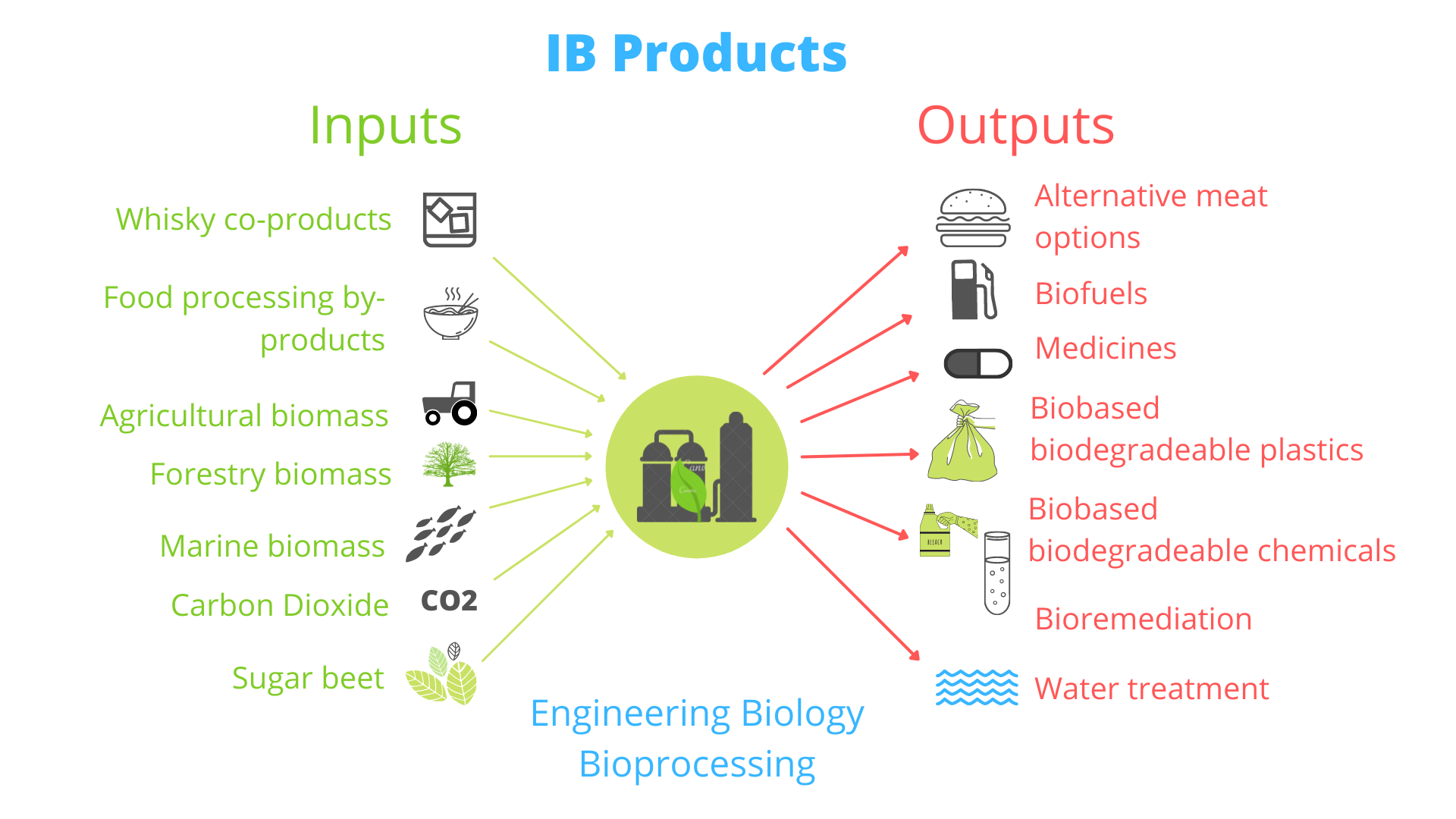
Industrial Biotechnology Products
The Net Zero Accelerator
This ambitious project looks to harness the power of biology to deliver ‘greener’ manufacturing processes and climate friendly products. It builds on Scotland’s unique suite assets around engineered biology, ‘omics technology, bioprocessing and scale up expertise and data science. It will fast-track the growth of a vibrant cluster of innovative businesses in Scotland’s Central Belt, creating new skilled jobs and substantial economic growth for the UK.

The Net Zero Accelerator
Read our Net Zero case studies
Scottish biotechnology company ScotBio has developed an environmentally-friendly way of boosting the production and stability of the natural blue pigment phycocyanin, opening the door to access new global markets.
Owners of food waste AD plants are looking for alternative ways to valorise waste that contains both plastic and biobased substances. Carbogenics wanted to investigate whether fermentation from screening waste was possible and test a scaled-up version of their process for making biomethane from waste using bacteria.
Using bacteria to clean waste water and recover metal ions.
This project investigated the feasibility of using oils extracted from fish industry waste to produce ingredients such as detergents and foaming agents for use in industrial products.
Improving the process for making sustainable meat alternatives at scale.
Trialling techniques to assess the chemical properties of chitosan extracted through a novel process.
IBioIC project funding enabled The Antibody Company to develop a novel test that has the potential to substantially reduce spoilage issues for microbrewers.
Using organic waste as a nutrient source to grow fungal mycelium for use as insulation blocks for the construction industry.



